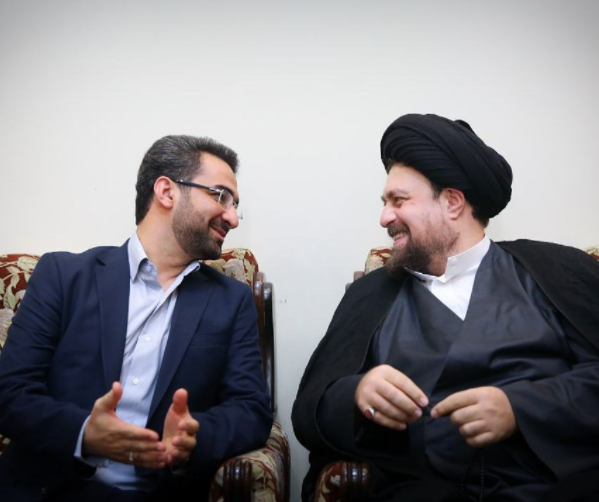Iran’s New Internet Minister Isn’t Delivering on Internet Freedom Promises

Credit to Author: Ankita Rao| Date: Wed, 27 Sep 2017 16:00:00 +0000
Mahsa Alimardani and Mo Hoseini are the authors of the Tightening the Net: A New Cabinet and New Attempts at Control , a briefing that covers concerns over internet censorship in Iran published by Article 19, an internet freedom nonprofit. Alimardani is an internet researcher working with Article 19, and a PhD candidate at the Oxford Internet Institute. Mo Hoseini is an Iranian-British internet policy researcher and expert with Article 19.
In August, a youthful, 36-year-old minister, Mohammad Javad-Azari Jahromi was appointed by Iran’s moderate President Hassan Rouhani. Many young Iranians were hoping the new Minister of Information and Communication Technology (ICT) might uphold Rouhani’s platform and support internet freedom. But Jahromi’s sullied past, arrests, and policies signal otherwise.
While government mouthpieces were celebrating the youngest member of Iranian government, activists like Hamzeh Ghalebi, were already against the appointment. Ghalebi, who spoke out against former populist President Mahmoud Ahmadinejad’s re-election during the 2009 Green Movement, told us that his friend was personally interrogated by Jahromi, and mistreated for his involvement in the protests.
Controlling the internet was a hallmark of the the Ahmadinejad administration, from 2005 to 2013. He oversaw the creation of the Computer Crimes Laws, which criminalizes a number of online activities that limit freedom of expression, and implementation of internet censorship and surveillance, including blocking mainstream platforms such as Twitter, Facebook, and YouTube. The central internet decision making authority, the Supreme Council of Cyberspace, also made internet policy a direct mandate of the Supreme Leader, Ayatollah Khamenei.
In May, we wrote that Rouhani was the candidate who most represented reform and freedoms going into the 2017 elections, a departure from Ahmadinejad’s tactics of control and intimidation. His first term success helping Iranians gain internet access, with increased speeds, and encouragement of ICT development all boosted the Iranian economy,
But with the appointment of Jahromi, much of his rhetoric now seems unfounded. Jahromi has increased his censorship of Telegram app conversations, a reversal of the previous minister’s efforts. He is also qualifying efforts to unfilter Twitter by suggesting the company must work with the Iranian government to moderate the platform inside of Iran.
The Supreme Council of Cyberspace is about to pass a law (see Tightening the Net) to either censor or compel technology platforms to work with the government for content regulation and monitoring. The Rouhani administration has yet to oppose this measure.
Why did Rouhani, a popular president who inspired and encouraged mass national rallies, pick Jahromi, a politician known for his role in repression? Perhaps it could be that his intention was never to further freedoms, or that he is caving into pressure from hardline government conservatives.
For all these reasons, advocates of internet freedom are demanding the government of Hassan Rouhani to live up to it’s words, and take concrete actions to protect freedom of expression (see a list of Article 19’s demands on page 11). But it remains to be seen if Iran’s new minister will get in the way.